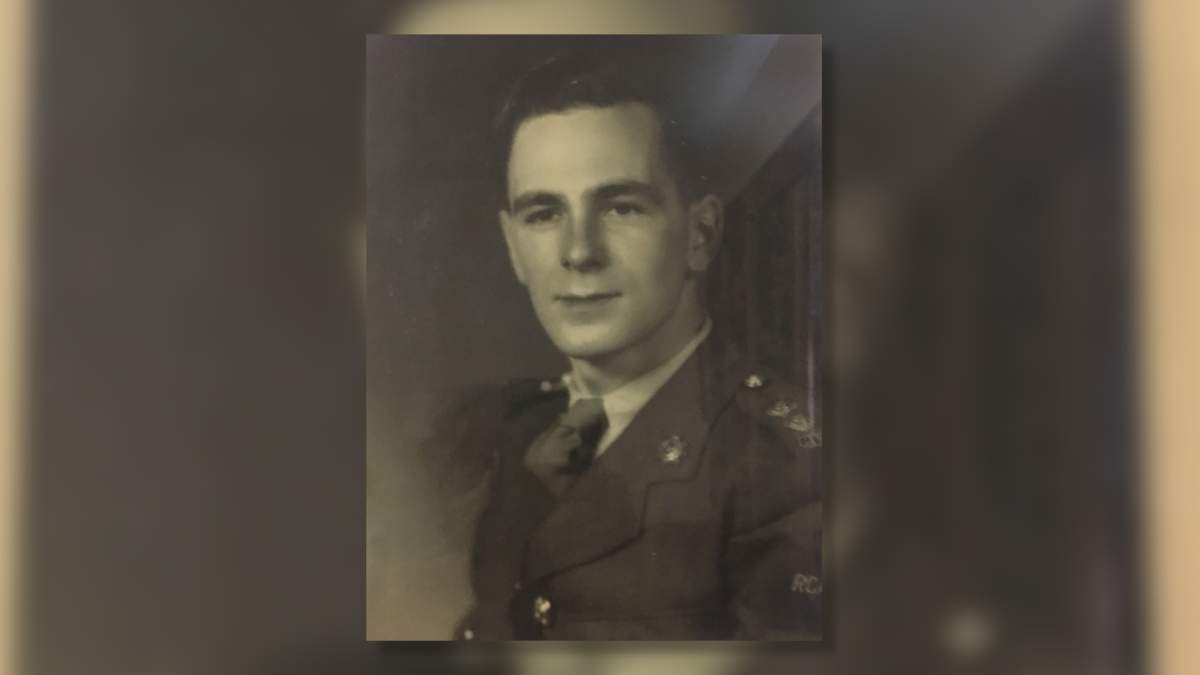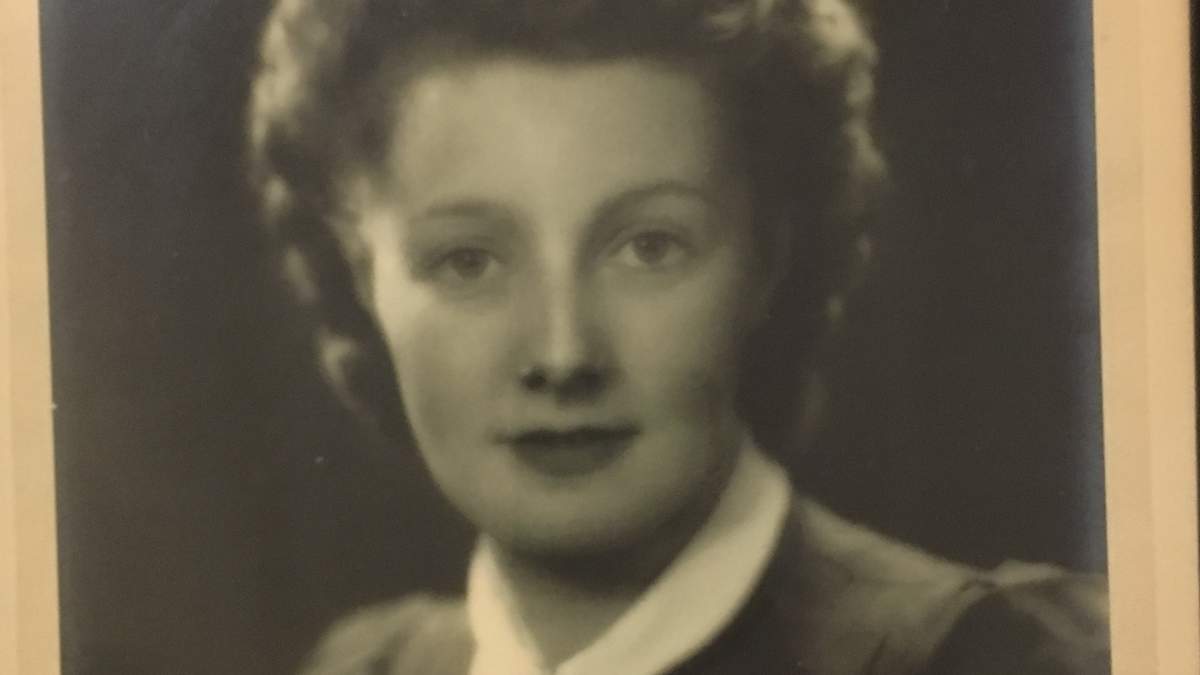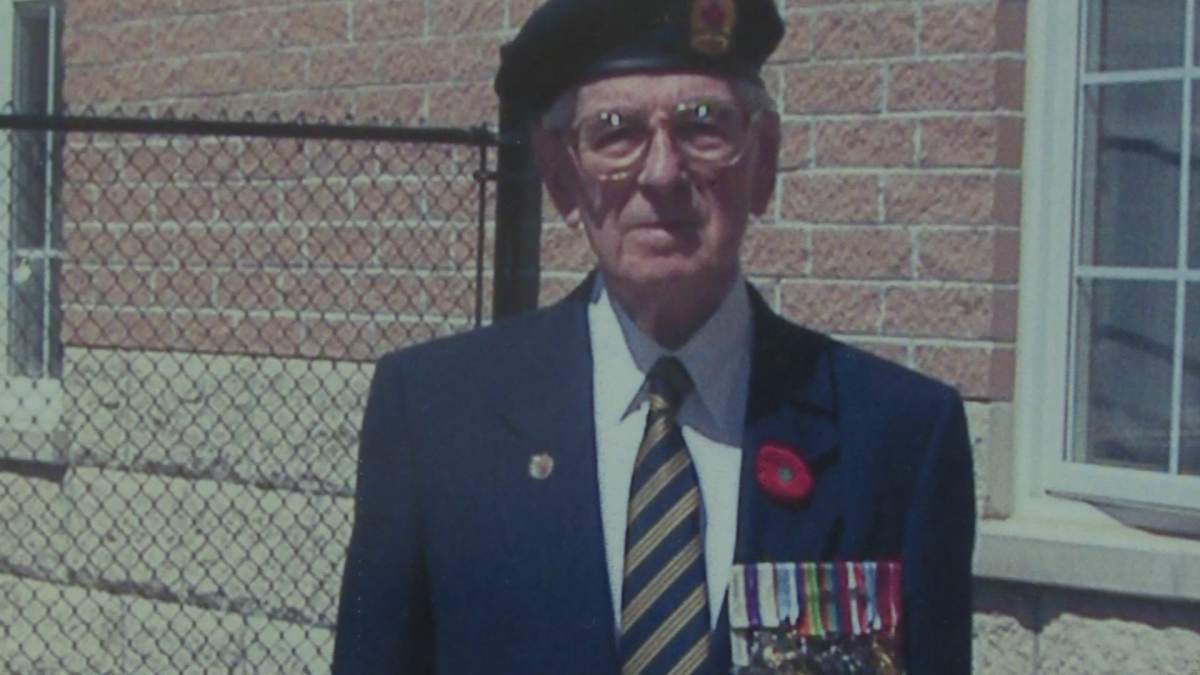Thursday marks the 75th anniversary of D-Day.

On June 6, 1944, Canadian soldiers joined with other Allies in a massive landing on the beaches of Normandy, France, on their way to victory in the Second World War.
But it came at a terrible price.
Rolland Durand, known as “Rolly,” was just 23 years old when he landed on Juno beach that day.
“That ship we were on, me and my men, I was a young lieutenant and I had about 90 men under my command,” says Durand. “We were down below in the dark; we couldn’t see anything.”
At that time, Nazi Germany had occupied France for four years.
Just after midnight on June 6, 1944, Allied troops from Britain, Canada and the United States landed along the Normandy coast.
“When we landed at Juno Beach, a bomb landed right in front of our ship,” Durand recalled.
Once off the ship, Durand led the Transport Platoon of the 4th Infantry Brigade to the front line. Their job, he says, was to deliver ammunition and incendiary devices.

Get breaking National news
“We were not scared,” Durand said. “We had a job to do.”
Born in a small village just outside Quebec City, Durand was later quoted in Wait for the Waggon: The Story of the Royal Corps of Transport and its Predecessors from 1794 to 1993, written by Leo Cooper.
Durand talked about the Canadian push to the Seine on August 26, 1944.
He was in charge of a convoy that carried infantrymen of the Black Watch Regiment into the strongly-held French village of Bourgetheoulde, 30 kilometres east of the coast.
They managed to take the village.
Durand married his British war bride Rose, now passed, and they had two children.
He continued to serve in the Canadian Armed Forces, retiring at age 60 in 1981.
Now 98 years old, this heavily-decorated Juno Beach solder will spend June 6 quietly at home in Kingston, 75 years after he and others made history on Juno Beach.
“A long life, you know,” Durand says. “To remember so many years that I served.”
- Attack on Iran triggers global flight disruptions, impacts Canadian travellers
- Queen’s University students stranded in Doha after Iran attack shuts down airspace
- WWE Hall of Fame ring belonging to wrestling legend recovered after stolen
- Carney calls for protection of civilians as U.S., Israel strike Iran













Comments
Want to discuss? Please read our Commenting Policy first.